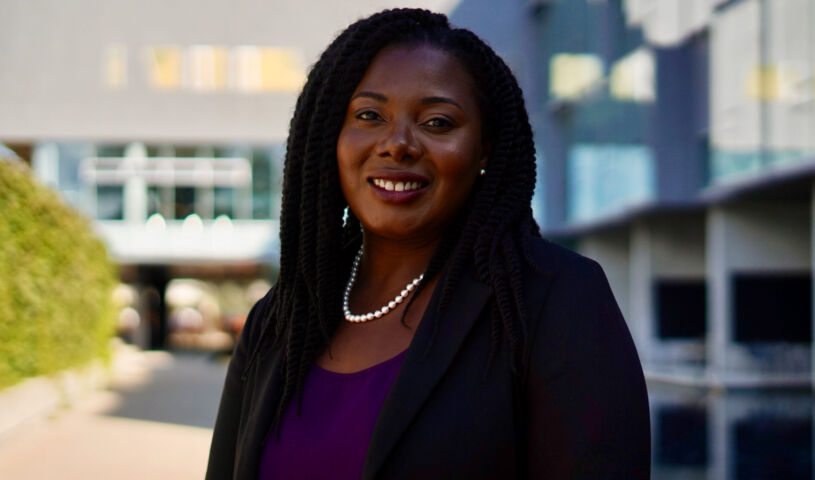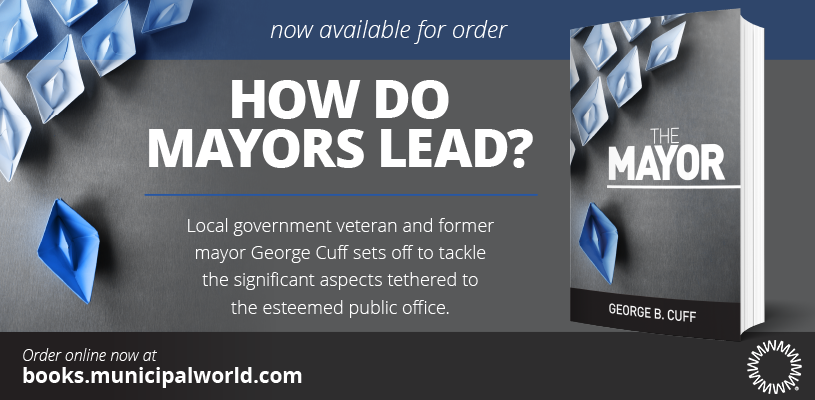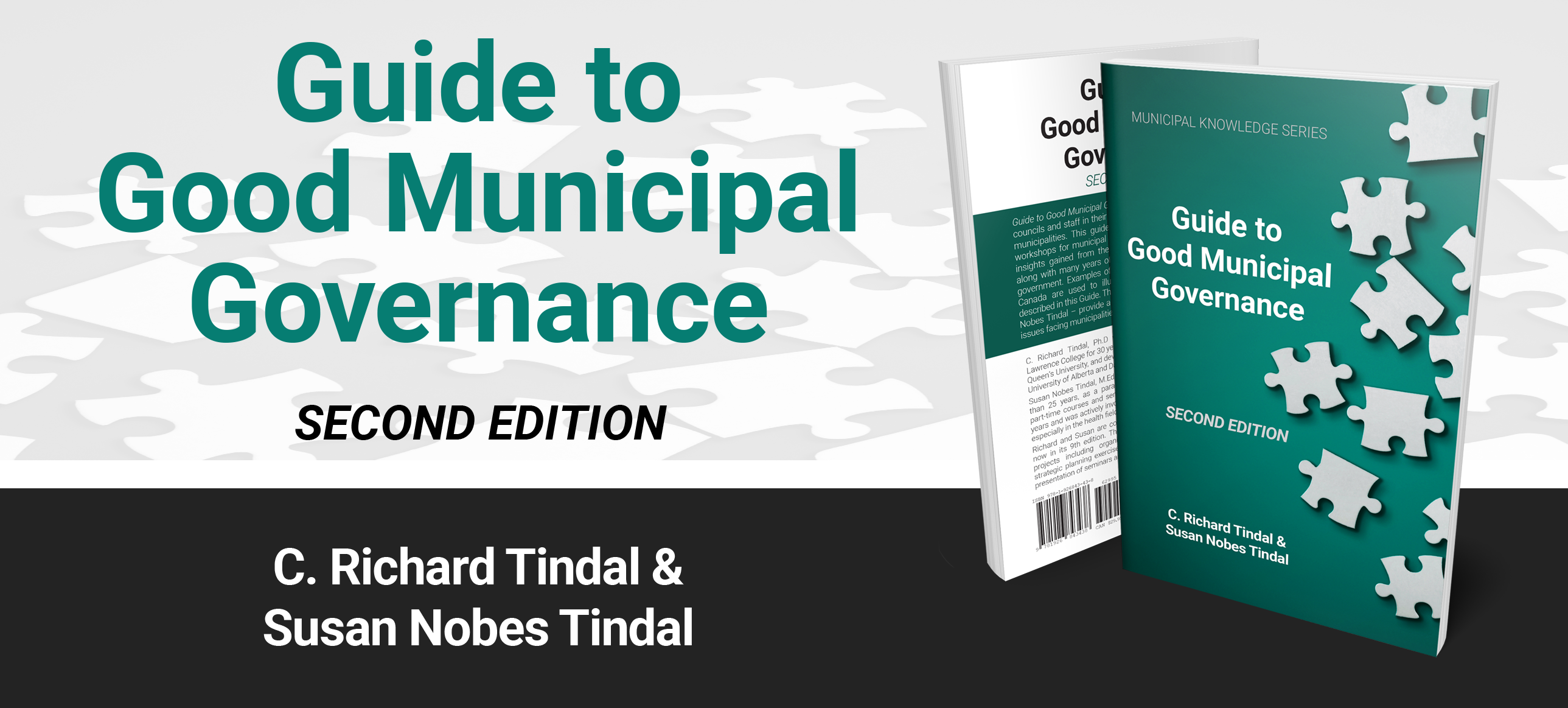Equity lens needed for tariff talks, says Waterloo Region councillor
 Waterloo Region Coun. Colleen James knows firsthand how difficult it can be for an equity lens to be applied to important conversations. The tariff discussion, it turns out, seems to be no different. Photo: Colleen James
Waterloo Region Coun. Colleen James knows firsthand how difficult it can be for an equity lens to be applied to important conversations. The tariff discussion, it turns out, seems to be no different. Photo: Colleen James
Ever since U.S. President Donald Trump started his global tariff war, Prime Minister Mark Carney has pushed back with a “Canada Strong” approach that has focused on fostering national resilience and self-reliance.
The initiative encompasses various efforts, including promoting domestic economic growth, reducing reliance on foreign imports, and encouraging Canadians to support local businesses and products.
The approach has gained widespread public support. It has also been championed by municipal officials from across Canada who have been at the forefront of the country’s pushback against Trump’s tariffs.
But it also started Colleen James thinking about just who has been involved in these conversations.
James represents the City of Kitchener on Waterloo Region council. First elected in October 2022, James has more than 15 years of experience in municipal government. She is also a local business owner and a former professor.
James also knows firsthand how difficult it can be for an equity lens to be applied to important conversations. The tariff discussion, it turns out, seems to be no different.
Back on April 7, James wrote a blog post about the importance of protecting Canadian economic interests. But, she added, there is a “glaring omission” in these conversations. That omission is “the impact of tariffs on often overlooked communities, small businesses, and the ongoing structural inequities that continue to shape our economy.”
It is a point she followed up with: “We cannot talk about Canada being ‘strong’ without asking: strong for whom?”
Concerning Community Conversations
James said her inspiration for the blog post stemmed from a lot of conversations she has been having with residents in Waterloo Region. The tariff conversation, she said, is very much top of mind for people.
It’s tough to miss, she said, given Canada is in the midst of a federal election where every other day something is changing. And it was while talking with small business owners and, in one particular case, a woman-led small business who is concerned about the impact on the sustainability of her business.
It is far from the first time James has had such conversations around those individuals whose voices aren’t being heard.
“We have to have the conversation. This is where I pointed out some of that hypocrisy. We’re talking about tariffs and all the things, but there’s a whole equity perspective to this as well. And if not now, when?” James said. “For many people, especially those who are marginalized or are under-recognized, it is disproportionately Black and Indigenous and racialized and women-led businesses who often are left not part of the critical conversations. And what I see is a lot of speaking for instead of how we bring people into this conversation.”
James said she has long been concerned about the lack of a diversity in many important municipal conversations. This, she said, is never a good thing, but it is also not entirely surprising.
Often, she added, there are systemic barriers, such as racism or discrimination, which seeps into how policy is created. As such, she’s not surprised that same thing appears to be happening in the tariff conversation.
“I also recognize that it’s in communities that are becoming more and more diverse. We can’t ignore that anymore because they’re providing and sustaining within our economy,” James said. “And some of what I also do is work with small, scaling, mostly women-led, racialized entrepreneurs who are contributing to the economy but aren’t part of some of these critical conversations.”
Adding an Equity Lens
Municipal officials have played significant roles in negotiations with their U.S. counterparts. Many of these conversations have been driven by organizations such as the Federation of Canadian Municipalities. They have seen high-level, high-pressure conversations take place on a fairly regular basis.
James’ concern is whether an equity lens is being applied to these conversations. And if not, how it can be in the future.
James said she has spoken with many people in diverse communities. Even thinking about supply chain issues and some of the cultural perspectives that need to be brought in from an international perspective, she said officials need to be intentional when it comes to considering diverse backgrounds.
Their needs, James said, are going to be different. But again, from her perspective, challenges faced by women-led, Indigenous-led, Black or racialized businesses, as well as small business owners and community members with accessibility needs, are often unique. But that said, James added, they remain valid to the conversations around the impact of tariffs on those communities.
“Speaking about the equity and inclusion piece of all of this, if we’re really committed to addressing equity, it can be applied through every kind of facet of an organization,” James said. “Perspective. I think this is one of the things that for me, if you see where there is a gap or an opportunity, speak to that. I think if we don’t, we continue to assume that everyone’s being encompassed in these conversations when the reality is they’re not.”
Empowering Canada Strong
James said she has sat at many tables talking about economics, equity, and municipalities. And in all these conversations, she is always conscious of who’s not taking part and how they can be included.
Until that happens, James said, there won’t be “any real change in terms of ensuring that we’re Canada strong in all of the ways that we are strong.”
This tariff conversation is deeply connected to communities, James said. And as such, it is deeply connected to those women-led, Indigenous, Black, racialized small business that are starting up, scaling up, and contributing to local economies over the long term.
“Everyone keeps saying just weather the storm, everything will balance out. But for those equity-deserving small businesses that are also trying to contribute, what is weathering the storm look like for them?” James said. “Canada Strong has to include everybody. It’s not a one-size-fits-all approach. And it shouldn’t be. Historically, when we do the one-size-fits-all, it only benefits a few at the exception of many.” MW
✯ Municipal World Executive and Essentials Plus Members: You might also be interested in Lauren Bernardi and Hannah Tarr’s article: Creating harmony in a polarized world.
Sean Meyer is digital content editor for Municipal World.
Related resource materials:



